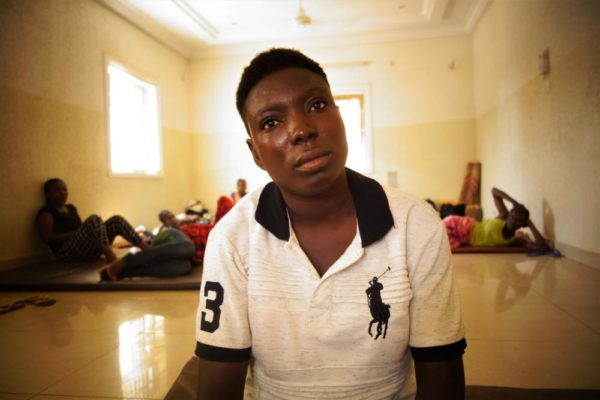News
“We had to drink our own pee to survive” – Nigerian Woman Who Spent 10 Days in Sahara Desert
 A 22-year-old Nigeria woman who left the country in April in search of greener pastures in Europe survived 10 days in Sahara Desert after being abandoned by traffickers.
A 22-year-old Nigeria woman who left the country in April in search of greener pastures in Europe survived 10 days in Sahara Desert after being abandoned by traffickers.
The woman, nicknamed Adaora, was one of 50 migrants who left Agadez for Libya, according to NAN.
She said they were in the desert for 10 days, the fifth of which the driver had abandoned them, leaving with their belongings.
“We were in the desert for 10 days. After five days, the driver abandoned us. He left with all of our belongings, saying he was going to pick us up in a couple of hours, but he never did,” she said.
Two days after they were abandoned, 44 of the migrants died, leaving 6 who decided to start walking to look for help.
“They were too weak to keep going. We buried a few, but there were just too many to bury and we didn’t have the strength to do it,” Adaora said.
Adaora said she collapsed while walking and two of the other migrants carried her until they met the truck driver.
“We had to drink our own pee to survive. I couldn’t walk anymore. I wanted to give up.”
The 6 were rescued by a truck driver who took them to local authorities, who then alerted International Organisation for Migration (IOM) in Dirkou in Agadez, Niger.
IOM said it rescued no fewer than 600 people since April 2017 through a new search and rescue operation that targeted migrants stranded in Sahara Desert.
The UN migration agency, however, regretted that 52 migrants died over the period, according to its statement on Tuesday.
“We are enhancing our capacity to assist vulnerable migrants stranded in Northern Agadez, towards the Niger-Libya border. Saving lives in the desert is becoming more urgent than ever. Since the beginning of the year we have been receiving frequent calls to rescue victims who embark on this route,” Giuseppe Loprete, Niger Chief of Mission for IOM said.
On June 9, another 92 migrants were also rescued through an IOM search and rescue operation; among them were 30 women and children.
More recently, 24 migrants were taken to Seguedine, where one died on arrival.
“Among the 23 survivors are migrants from Gambia, Nigeria, Senegal and Cote d’Ivoire. It was not clear for how long they had been walking in the deserts of central Niger. They had been in a group of 75 migrants in three different cars, eventually abandoned by smugglers during the journey north,” Loprete said.
IOM said its new project Migrants Rescue and Assistance in Agadez Region (MIRAA) launched in April will last for 12 months, and aims to ensure the protection of migrants in hard-to-reach areas while also strengthening the management of migration by the Government of Niger.
MIRAA is complementary to the larger initiative Migrant Resource and Response Mechanism (MRRM), which aims to bring together in one mechanism a wide range of services and assistance for migrants, including assisted voluntary return to their countries of origin and reintegration once they return.
Photo Credit: NAN
























